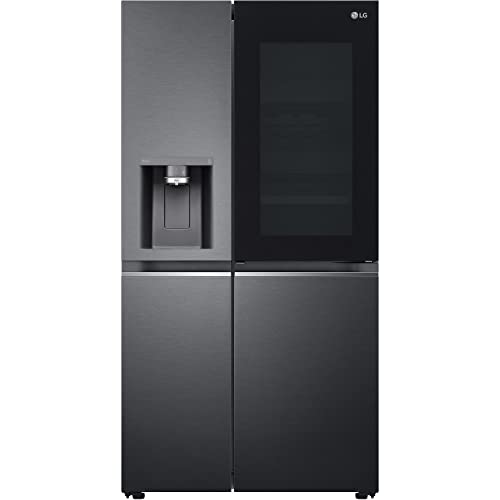Where to Buy a Fridge: A Comprehensive Guide
Getting a refrigerator is a substantial decision due to its role as one of the most necessary home appliances in the home. Fridges are available in different sizes, designs, and rate ranges, making the buying process potentially frustrating. However, understanding where and how to shop for a fridge can simplify this procedure. Buy A Fridge Online intends to explore various avenues for buying a refrigerator, essential factors to consider, and regularly asked concerns to assist consumers make notified choices.
Where to Buy a Fridge
When it pertains to looking for a refrigerator, consumers have numerous options. Each opportunity provides its own benefits and drawbacks, and knowing these can help purchasers choose the best suitable for their requirements.
1. Brick-and-Mortar Retailers
Conventional device stores and big-box sellers continue to be popular destinations for refrigerator shopping. These places include:
- Home enhancement shops (e.g., Home Depot, Lowe's)
- Electronics shops (e.g., Best Buy)
- Specialty appliance retailers
Pros:
- Hands-On Experience: Customers can see, touch, and inspect the fridge.
- Immediate Availability: Many shops use same-day shipment services.
- Sales Assistance: Trained sales staff can supply expert advice.
Cons:
- Higher Prices: Retail prices can be steeper compared to online alternatives.
- Restricted Inventory: Smaller shops might not carry comprehensive selections.
2. Online Retailers
The internet has changed the way people shop, including for home appliances. Popular online choices include:
- E-commerce giants (e.g., Amazon, Walmart)
- Manufacturer sites (e.g., Samsung, LG)
Pros:
- Wider Selection: Online shops frequently have a more extensive inventory compared to brick-and-mortar areas.
- Convenience: Shopping can be done from the convenience of home at any time.
- Price Comparisons: Easily compare rates throughout various platforms.
Cons:
- Shipping Costs: Delivery costs can contribute to the overall cost.
- No Immediate Gratification: Customers need to wait on shipment.
- Lack of Personal Interaction: No opportunity to ask direct questions.
3. Storage facility Clubs
Membership-based wholesale sellers, like Costco and Sam's Club, use fridges at competitive rates.
Pros:
- Bulk Discounts: Membership often allows for cost savings on larger purchases.
- Excellent Quality: These stores keep high requirements for the brands they carry.
Cons:
- Membership Fee: A membership is needed to shop there.
- Limited Choices: The stock might not include all brands or models.
4. Regional Classifieds and Marketplaces
Platforms like Craigslist, Facebook Marketplace, and OfferUp allow people to buy used or new fridges from local sellers.
Pros:
- Lower Prices: Often less expensive than retail, especially for used products.
- Local Transactions: Easy to view and get home appliances.
Cons:
- Risk of Quality Issues: Used models can feature hidden issues.
- No Return Policy: Typically, sales are final, without any guarantee or assurance.
Table of Fridge Types and Features
| Fridge Type | Best For | Key Features |
|---|---|---|
| Top Freezer | Budget-conscious consumers | Classic style, inexpensive |
| Bottom Freezer | Easy access to fresh food | Ergonomic design |
| Side-by-Side | Households with limited space | Sufficient storage and ease of access |
| French Door | Gourmet cooks | Style, area, advanced features |
| Compact | Small areas like apartment or condos | Space-saving design |
Secret Considerations When Buying a Fridge
As customers contemplate where to buy a fridge, various factors to consider can assist their decision-making process:
Size and Fitting
- Step the Space: Ensure the fridge fits within designated kitchen area area.
- Door Swing: Account for door clearance and swing radius.
Energy Efficiency
- Look for Energy Star Ratings: This ensures lower electrical power costs.
- Comprehend the Long-Term Savings: Energy-efficient designs might have higher in advance expenses but lower operating costs.
Design and style
- Select a Style: Select appropriate designs such as standard or modern according to your kitchen aesthetics.
- Complete Options: Stainless steel, black, and white finishes can affect the total appearance.
Price Considerations
- Set a Budget: Determine a costs variety before shopping.
- Expect Discounts: Seasonal sales durations frequently provide cost savings.
Guarantee and Support
- Manufacturer's Warranty: Understand what is covered and for for how long.
- Client service: Check scores for producer assistance services.
Often Asked Questions (FAQs)
Q: What is the most energy-efficient refrigerator brand?
A: Brands such as Energy Star, LG, and Samsung are commonly acknowledged for their energy efficiency.
Q: Is it worth buying an utilized refrigerator?
A: It can be, specifically if you are on a tight spending plan. However, ensure you inspect the device completely for any existing problems.
Q: What is the average life expectancy of a refrigerator?
A: Most fridges last between 10 to 20 years, depending upon usage and maintenance.
Q: Should I buy a refrigerator online or in-store?
A: This depends upon personal preference. Online shopping uses convenience and selection, while in-store offers hands-on experience and immediate purchasing choices.
Q: What features should I look for in a refrigerator?
A: Key features to think about consist of adjustable shelving, ice and water dispensers, noise level, and clever innovation options.
Searching for a refrigerator doesn't need to be a complicated job. With different buying options-- from brick-and-mortar shops to online sellers and categorized ads-- customers can discover the best refrigerator that fits their needs. By thinking about vital factors such as size, energy performance, and style, potential purchasers are better geared up to browse the buying procedure. Ultimately, whether buying new or used, the goal stays the same: to improve the cooking area experience with a dependable appliance that satisfies both useful needs and individual preferences.

